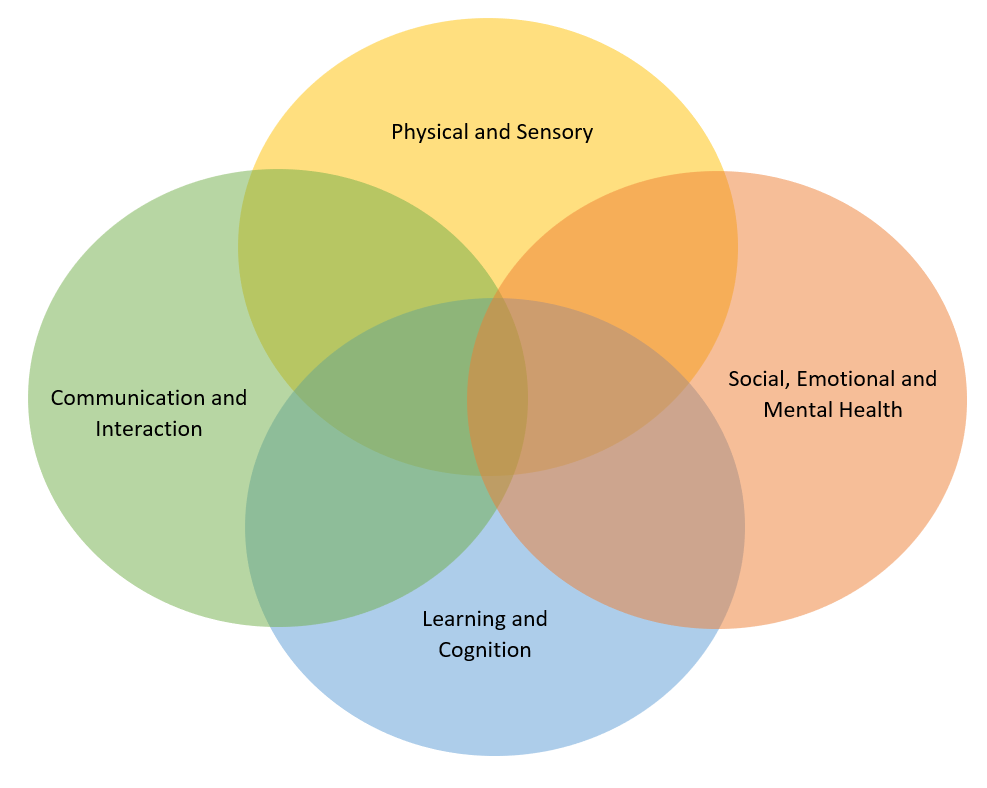At St Stephen's, it is our mission to develop children to their full potential in a happy, caring Christian environment, ensuring the vital partnership with parents. We want all our children to uphold our motto of 'Our Faith can move Mountains' and believe all pupils should be equally valued and should have access to the full range of the curriculum. They should have the opportunity to contribute usefully to the life of the school. All children, irrespective of ability should be encouraged to develop an awareness of and a respect for individual differences.
SEND Code of Practice
In line with the SEND Code of Practice 2014, every teacher is a teacher of every pupil, including Special Educational Needs.
https://www.gov.uk/government/publications/send-code-of-practice-0-to-25
The SEND Cod of Practice states a child has Special Educational Needs (SEN) when their learning difficulty or disability calls for Special Educational Provision, different from or additional to that normally available to pupils of the same age (Code of Practice 2015, Identifying SEN in Schools, 6.15, page 94). This means that not all pupils who have a learning difficulty or disability have Special Educational Needs. We are here to support all children and parents so if you suspect your child may have a learning difficulty or/and a Special Educational Need, please arrange to speak to your child's Class Teacher or myself, Mrs Faulkner (SENDCo) to discuss your concerns.
The four areas of SEND as outlined in the SEND Code of Practice (2015) are:
Communication and Interaction
Learning and Cognition
Social, Emotional and Mental Health
Physical and Sensory Needs
Communication and Interaction can encompass a lot of needs and issues that a child may have and includes children with Autism Spectrum Disorder (ASD) and those with Speech, Language and Communication needs. Children have difficulty in communicating with others; this may be because they have difficulty saying what they want to, understanding what is being said to them, or they do not understand or use social rules of communication.
Learning and Cognition can cover a range of needs and includes children with Specific Learning Difficulties, Severe Learning Difficulties, Moderate Learning Difficulties, Profound Learning Difficulties and Multiple Learning Difficulties. Support for learning may be required when children and young people learn at a slower pace than their peers, even with appropriate support and differentiation. Learning and Cognition conditions may include dyslexia, dyscalculia, dysgraphia and dyspraxia.
Social, Emotional and Mental Health encompasses wide range of social and emotional difficulties which manifest themselves in many ways. Children can become withdrawn or isolated, as well as displaying challenging, disruptive or disturbing behaviour; these behaviours may reflect underlying mental health difficulties such as anxiety.
The Code of Practice clarifies that persistent disruptive or withdrawn behaviours do not necessarily mean that a child or young person has a special educational need. Where there are concerns, there should be an assessment to determine whether there are any other factors including external factors such as family concerns including housing or other domestic circumstances. This assessment could involve our Family Support Worker and or other external agencies.
Physical and Sensory Needs includes hearing, visual or multi-sensory impairment and includes children with physical difficulties. Some children and young people require special educational provision because they have a disability which prevents or hinders them from making use of the educational facilities generally provided - these difficulties can be age related and may fluctuate over time. Many children with and young people with a vision impairment (VI), hearing impairment (HI) or multi-sensory impairment (MSI) will require specialist support and/or equipment to access their learning. Some children and young people with a physical disability (PD) require additional ongoing support and equipment to access all the opportunities available to their peers.
SEN Policy
Bolton SEND Local Offer
SEND Information

.png)